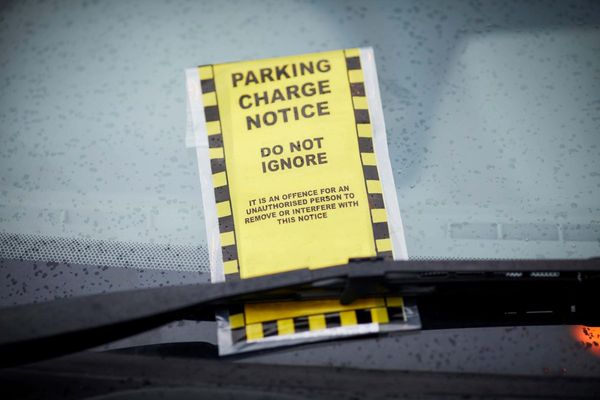WASHINGTON _ At 8 p.m. the night before special counsel Robert Mueller's report was publicly released, Jared Kushner huddled with two of his top aides in the Eisenhower Executive Office Building _ not to discuss the Russia investigation, but to work on their long-awaited Middle East peace initiative.
President Donald Trump's son-in-law and two senior advisers, Jason Greenblatt and Avi Berkowitz, were preparing the public debut of the most secretive policy plan in the White House. They have staffed up their strategic communications team and are almost settled on a plan of action to inform Israelis, Palestinians and regional governments of its contents.
The expected summertime launch will mark their emergence from a cocoon of strategic silence for more than two years, considered a unique accomplishment among the president's aides who acknowledge their exceptional discipline in an otherwise leaky White House.
Only the three of them and David Friedman, the U.S. ambassador to Israel, have seen the peace plan in full. Four Cabinet-level officials _ Vice President Mike Pence, Secretary of State Mike Pompeo, national security adviser John Bolton and former U.S. Ambassador to the United Nations Nikki Haley _ have read portions of it and provided input starting last summer, two White House officials told McClatchy.
The purpose of their silence, according to members of the team, has been to shield the deliberative process from outside parties trying to influence, corrupt or derail the initiative at its inception.
But the team will face new challenges in keeping influencers at bay once the plan emerges.
"The team is prepared for an onslaught of commentary and criticism once we enter the launch phase," Greenblatt, Trump's special representative for international negotiations who leads daily work on the peace effort, told McClatchy. "We fully accept rational criticism, but we also hope that people will focus on the many positive aspects of the plan."
The team credits its ability to maintain secrecy in part to its unique loyalty to the president: Kushner, Friedman and Greenblatt have all known Trump for over a decade, well before he entered politics, and Berkowitz and Kushner are longtime friends.
Now in the "pre-launch phase," members of the team say that a private deliberation has provided them with the necessary breathing room to test out ideas.
"One of the main things we had to watch for were spoilers," said one White House official. "Retrospectively, I think it was one of the smartest decisions we made, because many who are against peace efforts _ and there are many _ have tried to weaponize anything to try and harm the effort. I don't think we understood the magnitude of that force against our success."
"I'd love to say we were smart enough to know this would happen," the official added, "but we were warned about this and learned it very quickly."
Dennis Ross, an adviser on Middle East policy to former Presidents George H.W. Bush, Bill Clinton and Barack Obama, said that the Trump team had no choice but to keep the most coveted details of its plan under lock and key.
"It sends a level of seriousness when you can keep the details of the plan completely secret," Ross said. "But if the plan has really controversial elements in it, presumably to each side, then if they're out there before the plan is released in full it would force the sides to dig in before it's even presented."
There are drawbacks to this approach, as well. So little of the plan is known to the public that questions about its very existence have become a running joke with members of the team. Rampant speculation over the contents of the plan has prompted Greenblatt to storm Twitter in Trump style to swat down rumors. And there is a concern among some over the consequences of failing to ground expectations _ that, in a vacuum of information, parties of all stripes have begun projecting their politics onto the effort.
"We have listened to all stakeholders and many, many experts," Greenblatt said. "We know what their comments are likely to be about the vision, from Israelis left and right, from Palestinians, from the region, from other countries and every interest group. We spent a lot of time with them to listen to their views. But we all know that no one can develop a plan that everyone will agree on. That's simply not possible."
Greenblatt has consistently rejected applying a timetable in the run-up to the launch, but the team has confirmed that the rollout will occur sometime after Ramadan ends in June.
"Everyone else should be supportive and encouraging in order to allow the parties to work through the difficult issues and compromises that would be needed to get a deal," Greenblatt said. "The compromises are theirs to make _ not the U.S.A.'s, not Europe's, and not anyone else's. We should not interfere with that process."
The Middle East peace process has been frozen since 2014, when Obama's secretary of state, John Kerry, failed to get the two sides to the negotiating table.
Obama's vision for peace clearly endorsed a two-state solution to the conflict, widely supported by the international community. While Trump has characterized Israeli settlement activity in the West Bank as "unhelpful" to the pursuit of peace since 2017 and said in September that he "likes" the two-state paradigm, the White House peace team has not confirmed their plan would include an explicit call for the creation of a Palestinian state.
The details of their plan _ including whether it fundamentally recognizes Palestinian sovereignty with a capital in east Jerusalem _ will determine whether or not Arab world leaders will publicly endorse it and privately encourage Palestinian Authority President Mahmoud Abbas to engage in a peace process.
Abbas is already trying to mobilize regional leaders against the plan, pointing to Trump's public policies on the status of Jerusalem and aid to the Palestinian Authority that he claims reflect bias against the Palestinians.
The team now faces a dilemma over how to break its silence. It can either issue details of the proposals directly to the public, in an effort to manage the plan's release, or first provide private briefings to the parties themselves as a trust-building measure that risks sparking a lengthy round of pre-negotiations _ or strategic leaks from skeptical foreign governments.
White House officials said they are nearing a decision on which approach is best.
"After 2 { years, I understand if they don't want to negotiate the plan before presenting it," Ross said. "Yes, there's a risk of premature disclosure. But there's also a risk of premature rejection. Are they better off simply springing it, or do they want to know what the reaction will be?"






